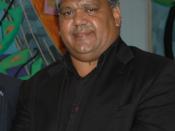As there are a lot of different countries in the world, there are also a number of different cultures as well as different races. In the presence of different peoples in one area or country, there is often a lot of racism, which leads to inequality to particular ethnic groups. For example, in Australia, since European people arrived there in 1788, they have discriminated against indigenous people, Aborigines (Kuhn, 1998: 30). The European invaders drove most of Aboriginal people out of the mainland, and furthermore, they took a lot of indigenous children from their families and forced them to work at white farms or stations. They did not even consider Aboriginal people the citizen of Australia until 1967, and this continued in some states until 1980s (Yunupingu, 1997: 63-64). D'Souza (1999: 26) claims that what European people have done to Aboriginal people is a 'genocide', which can be defined as a crime against humanity.
As time went on, Australian people seemingly started to recognize Aboriginal people's human rights. However, today, there still seems to be a lot of inequality to indigenous people in Australian society. This paper will examine inequality to Aboriginal people in today's Australia in terms of health and medical systems, education and employment.
The first and probably the biggest point about inequality to Aboriginal people in Australia may be concerned with health and medical systems. First of all, a lot of Aboriginal people have been facing a serious lack of provision of water and sanitation, because most of them live in remote areas. Furthermore, this lack of provision of these services has resulted in many unnecessary deaths of indigenous people. In contrast to this, non-indigenous people do have certain provision of these services. Furthermore, in spite of the fact that many indigenous people have complained to...


